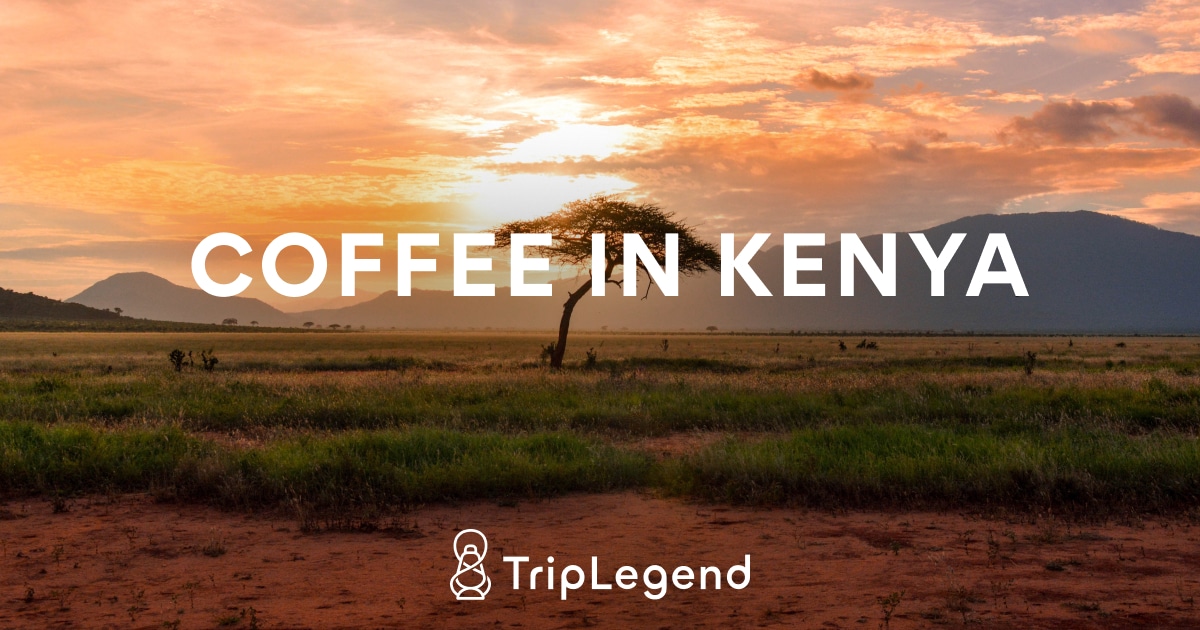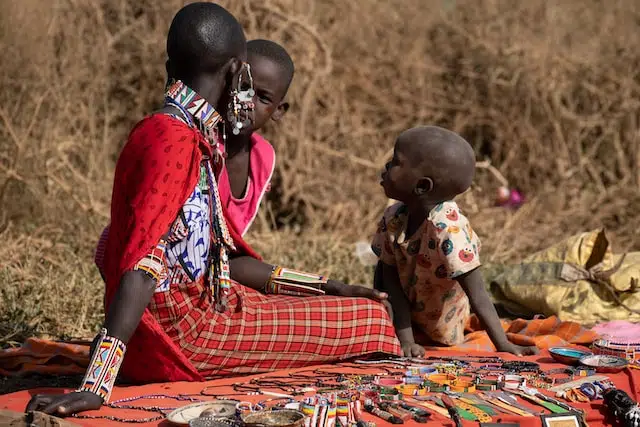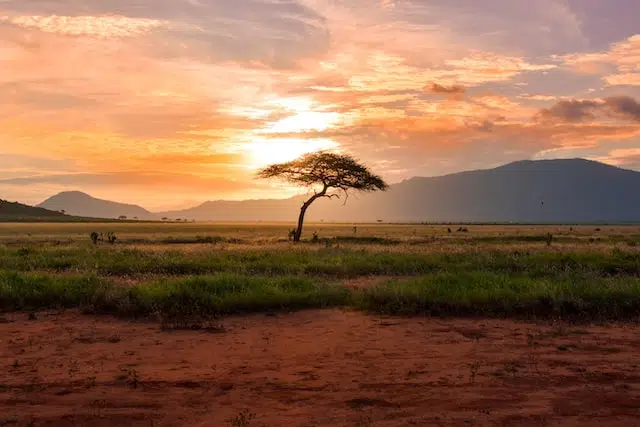Kenya is considered one of the best coffee-growing countries in the world. With its volcanic area, Kenya offers the perfect conditions for growth. Coffee is known for its unique taste and high quality. Let yourself be enchanted by the aromatic diversity and discover why Kenyan coffee is so special.
History of coffee in Kenya
The history of coffee in Kenya dates back to the 19th century. The first coffee plants were introduced by missionaries. Coffee was grown in large estates under British colonial rule. In 1933, the Coffee Act was passed, establishing the Kenya Coffee Board and moving coffee sales back to Kenya. It was only after 1960, when Kenya became independent again, that Kenyans themselves began to grow coffee on small farms and continue to develop some of the best quality coffee in the world. Until today, only Arabica coffee is produced.
Kenya's coffee regions
The best known coffee growing areas in Kenya are Kiundi, Mount Kenya and Kirinyaga. Coffee beans are grown on the fertile volcanic soil. A warm, humid climate and regular rainfall provide ideal growing conditions. Kenya's coffee is mainly produced by 600,000 smallholder farmers. They own only a few hectares of land, but account for about 60 % of coffee production. The remaining 40 % are grown on around 1,300 large plantations.
Cultivation, harvest and processing
Coffee plants grow in the higher altitudes of the country, where the climate and soil are ideal. The main harvest usually takes place from October to December. Coffee cherries are picked by hand to ensure that only the ripe ones are picked. After harvest, the cherries are de-pulped (separated from the pulp) to expose the bean. The beans are then washed and fermented to give them their characteristic flavor. The beans are then dried and sorted before being exported.
Classification of beans
The beans are classified according to their size with individual abbreviations. A few of these abbreviations are:
- PB: Peaberry bean is considered the highest quality bean. From the cherry comes only one bean, which gives it the chance to thrive extra intense and aromatic.
- E: Elephant beans are the largest beans and are considered a rare find.
- TT: This bean is the smallest.
- T: Here we have only fragments, so it is of low quality.
- Buni: These are fallen coffee cherries, which fell ripe from the bush and have a very sour taste. They usually bring little profit.
Taste profile
The coffee is known for its lively acidity, which gives it a bright and tangy note. The rich red soil on which the beans grow is particularly rich in aluminum and iron. This makes Kenyan coffee particularly acidic. Often the flavor is fruity, reminiscent of berries and citrus. Kenyan coffee also has a delicate sweetness and full body. The beans are often roasted medium to dark to create an intense aroma.
Two special coffees are:
- Rungeto Karimikui: This is a complex coffee variety. Fruity and berry elements characterize it. The fruity note is somewhat reminiscent of rhubarb. Depending on the water temperature selected, this variety can develop a different character.
- Kabare Karani: The aroma of this variety is spicy. The note is rounded off with extracts of nectarine, black currant, honey and gooseberry. These components provide a natural sweetness. Here, too, the water temperature influences the character.
Coffee tours and tastings
There are many coffee farms and plantations that offer tastings. Especially coffee farms around Nairobi offer tours. At a tasting you can try different varieties and explore the diverse aromas and flavor profiles yourself. Here you can also learn about the process of growing and preparing coffee. Culture and history also find their place here.
Sustainability and fair trade
Kenya's coffee industry has increasingly focused on sustainability and fair trade in recent years. Many coffee farms in Kenya are Rainforest Alliance certified, which means they adhere to strict environmental standards and work to protect the environment and biodiversity. In addition, there is also Fairtrade certified Kenyan coffee, which ensures that coffee farmers receive fair prices for their harvest and work under fair working conditions. By buying sustainable and fair trade Kenyan coffee, you can protect the environment and improve the living conditions of coffee farmers.
Coffee in Kenya
Kenya's aromatic coffee is not one of the best in the world for nothing. With a Trip to Kenya you have the chance to taste the black gold yourself on site. A tour through the beautiful coffee plantations is perfect for this.
For more travel inspiration follow us on Instagram and Pinterest.




